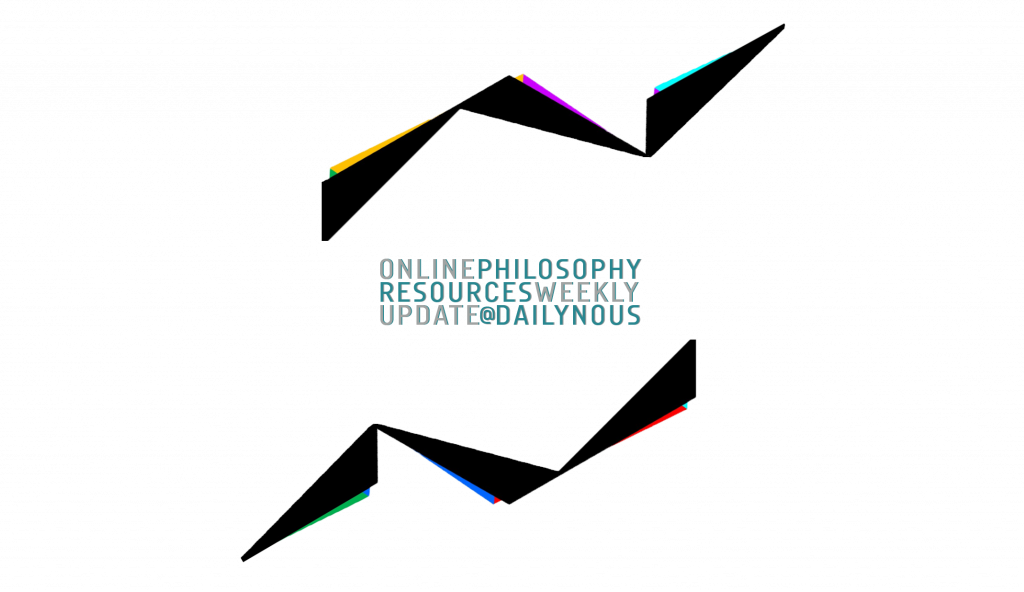Online Philosophy Resources Weekly Update
The weekly report on new and revised entries at online philosophy resources and new reviews of philosophy books…

Reminder: if your journal publishes open-access book reviews, please send in links to them for inclusion in future weekly updates.
New: ∅
Revised:
- Zhuangzi by Chad Hansen.
- Kumārila by Daniel Arnold.
- Law and Ideology by Christine Sypnowich.
- Modal Fictionalism by Daniel Nolan.
- Time Travel by Nicholas J.J. Smith.
- Social Epistemology by Cailin O’Connor, Sanford Goldberg, and Alvin Goldman.
- Pierre Gassendi by Saul Fisher.
- Location and Mereology by Cody Gilmore, Claudio Calosi, and Damiano Costa.
IEP ∅
NDPR ∅
Open-Access Book Reviews in Academic Philosophy Journals ∅
Recent Philosophy Book Reviews in Non-Academic Media
- Wonderstruck: How Wonder and Awe Shape the Way We Think by Helen De Cruz is reviewed at Publishers Weekly.
- Who’s Afraid of Gender? by Judith Butler is reviewed by Becca Rothfeld at The Washington Post, and by Pamela Stewart at The Post-Gazette.
- Limitarianism: The Case Against Extreme Wealth by Ingrid Robeyns is reviewed at The Economist.
Compiled by Michael Glawson
BONUS: No reason


Re: No.3, the revised SEP entry on “Law & Ideology”
I happen to find the following works rather compelling (albeit each for slightly different reasons):
And yet I subscribe in large measure to a Marxist worldview, thus believing in the necessity (and value) of the “critique of ideology” (although with a more generous psychological dimension than Marx might have countenance). So I was happy to read this conclusion (which I doubt is sufficiently acknowledged or appreciated) to the entry on “law and ideology” by Professor Sypnowich:
“A conception of law as having a moral source, or a source in a system’s institutions, can be independent of a realistic appraisal of law’s ideological function, or the ideological process in which laws are made. Indeed, radical critics of the ‘war on terror’ waged by western governments have pointed to the value of liberal legal ideals such as human rights and the rule of law at the same time as they have noted the ideological purposes to which such ideals are put. Both positivists and natural lawyers, so long as they do not insist that their conceptions of law are exhaustive of law’s reality, can permit the influence of ideology, even in its more radical interpretations. Law can be ideology as well as other moral or institutional phenomena at the same time; indeed, law will probably not succeed as ideology unless it is multi-dimensional in just this way.”